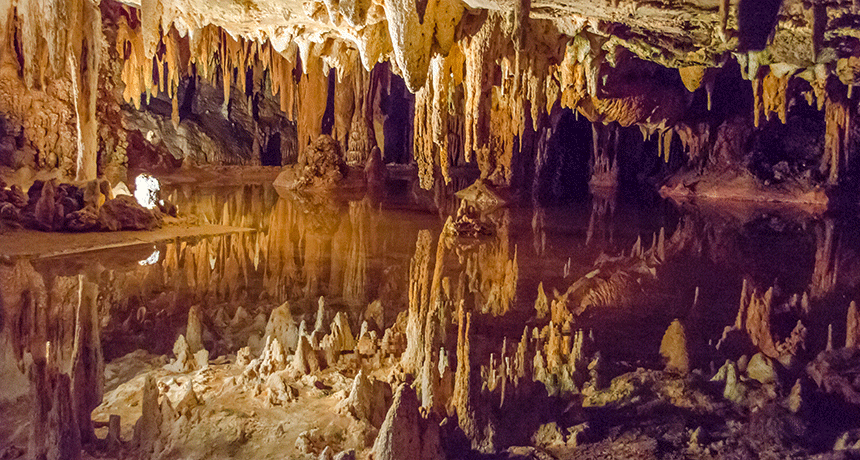bacteria (singular: bacterium) Single-celled organisms. These dwell nearly everywhere on Earth, from the bottom of the sea to inside other living organisms (such as plants and animals).
evaporate To turn from liquid into vapor.
mineral Crystal-forming substances that make up rock, such as quartz, apatite or various carbonates. Most rocks contain several different minerals mish-mashed together. A mineral usually is solid and stable at room temperatures and has a specific formula, or recipe (with atoms occurring in certain proportions) and a specific crystalline structure (meaning that its atoms are organized in regular three-dimensional patterns). (in physiology) The same chemicals that are needed by the body to make and feed tissues to maintain health.
stalactite A mineral formation found in caves that forms in much the same way that icicles do. Liquid water slowly drips down from a surface. But if the water evaporates before the drop falls to the ground, any minerals in the water may solidify to form rock. Over time, the stalactites may grow to a meter or more across and many, many meters long.
stalagmite A mineral feature that can develop in moist caves. Water that drips down from the cave ceiling can very slowly evaporate, leaving behind an upward-growing mound of mineral deposits, or rock. Most of these structures, which resemble upside down icicles,have rounded or flattened tips.








